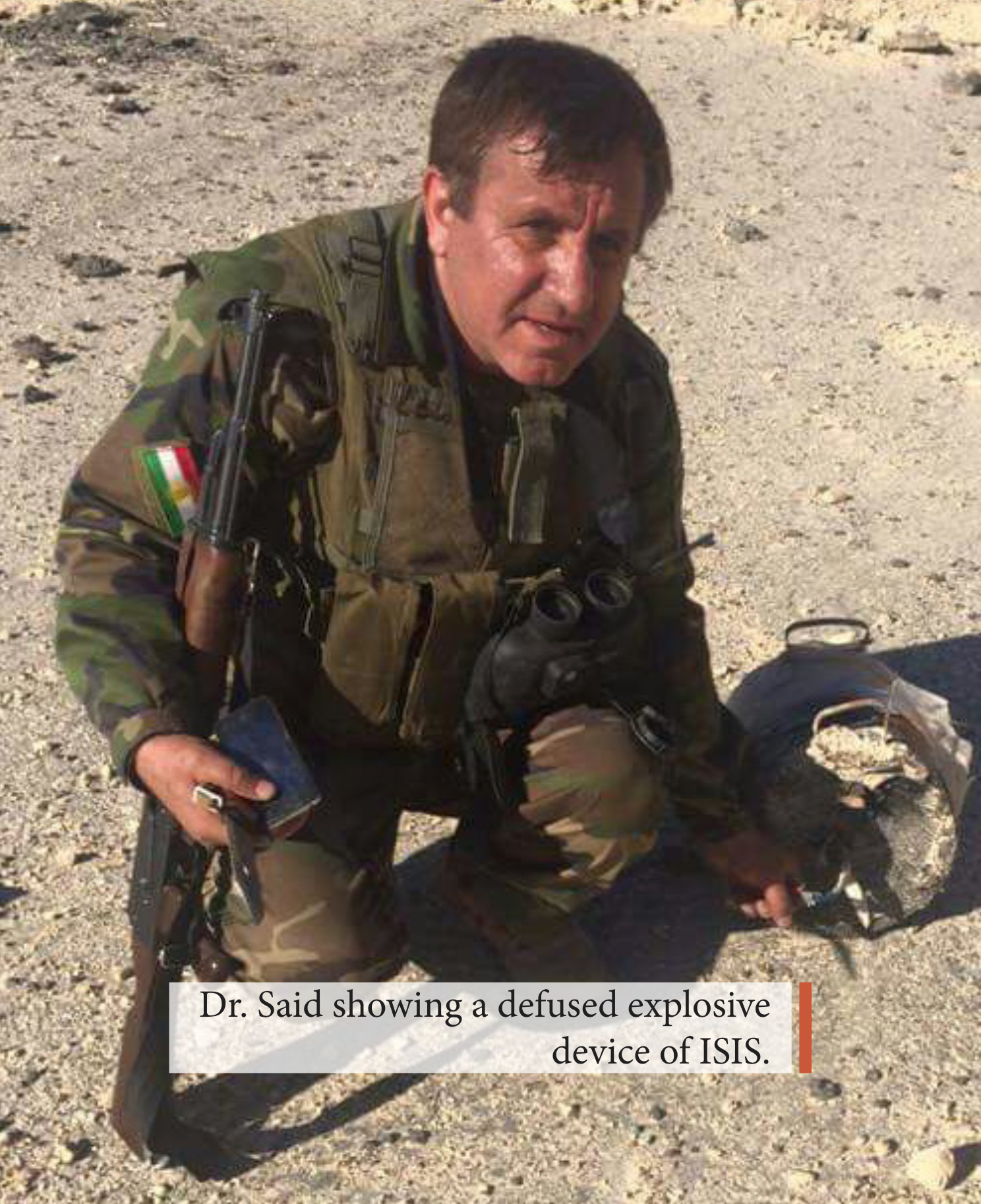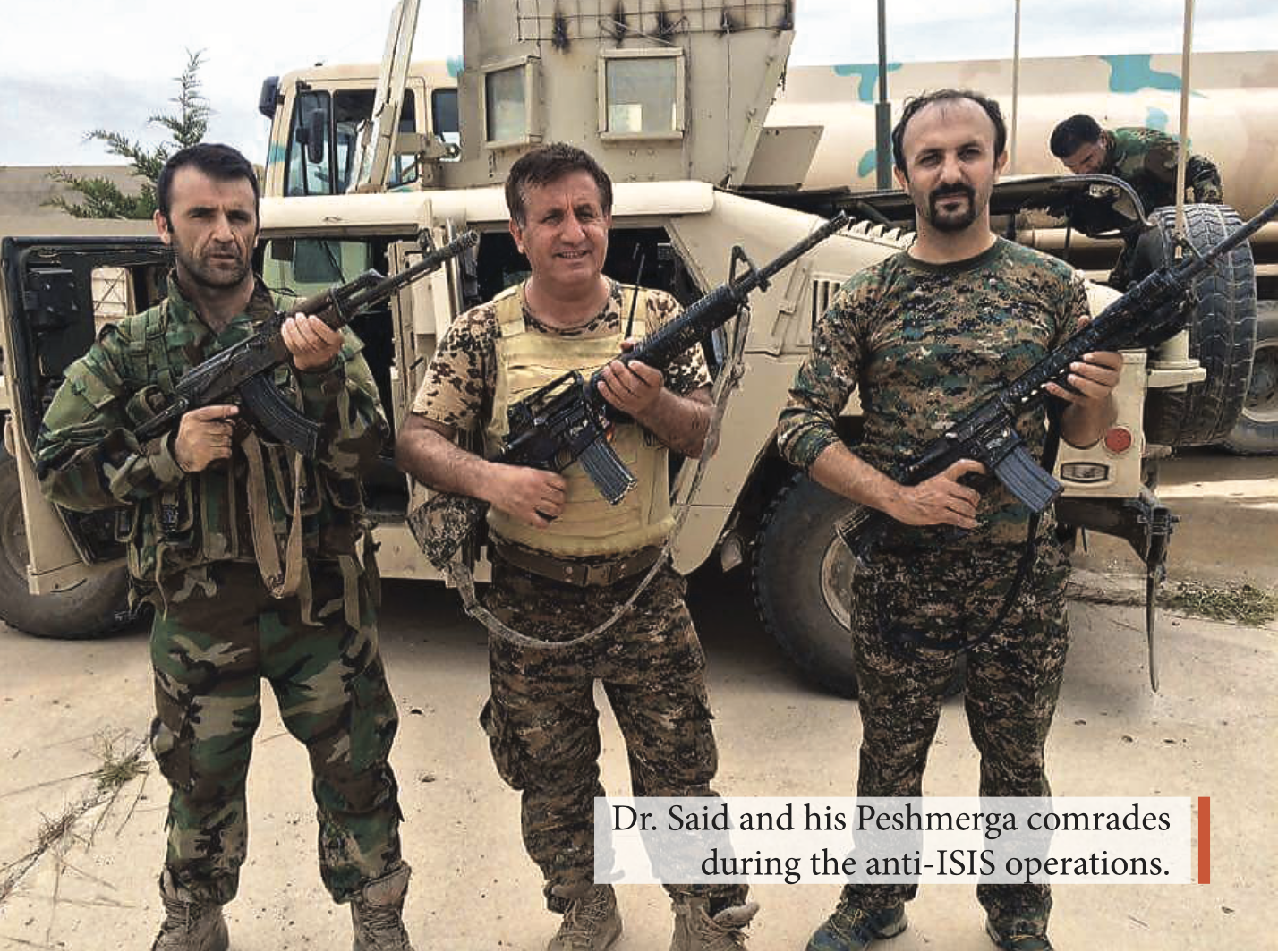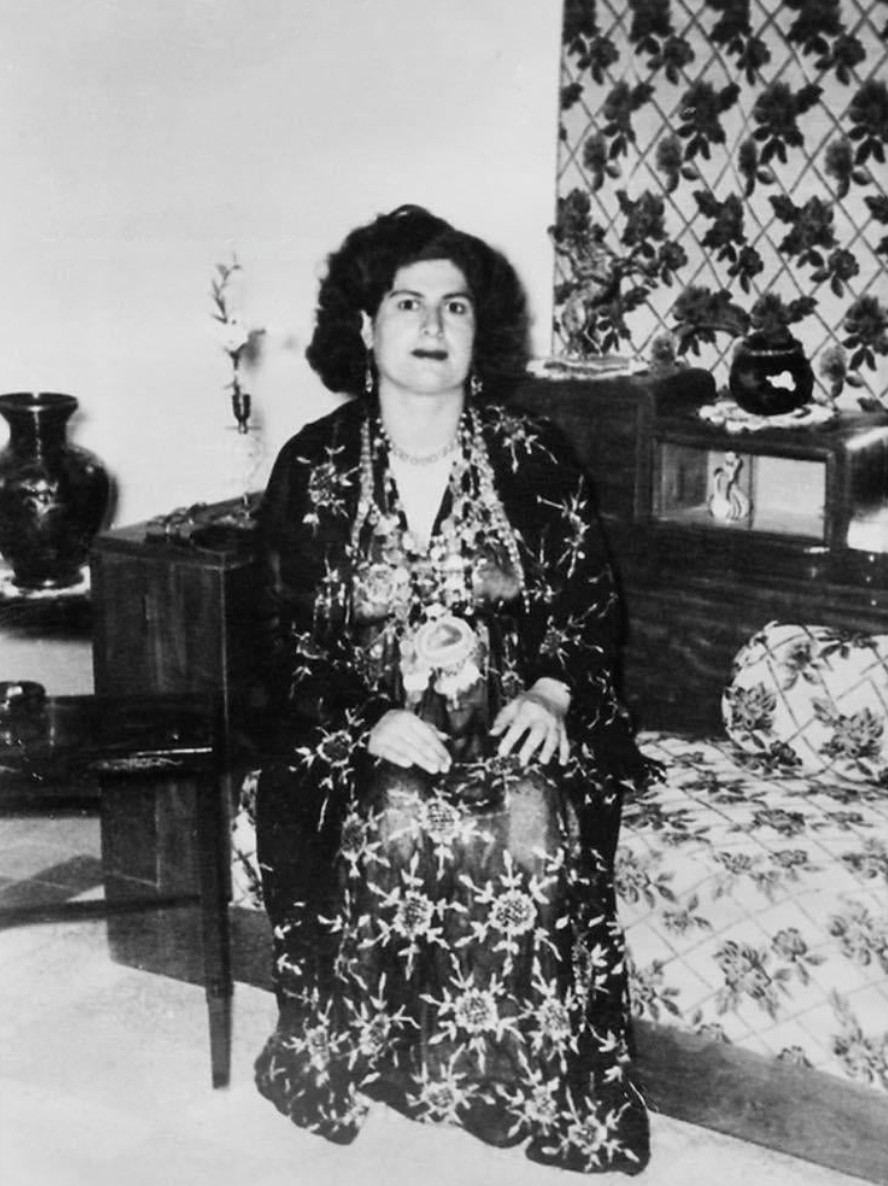During the blazing summer of 2014, the world was caught off guard as the Islamic State of Iraq and Syria (ISIS) claimed full control of Mosul, the second-largest city in Iraq. After a six-day battle with Iraqi forces, the barbaric group announced its self-proclaimed Caliphate, sending shockwaves throughout the international community.
Then, just two months later, the world witnessed one of the most heinous massacres of the 21st century in the Kurdish Yazidi town of Sinjar. Despite the gravity of the situation, only a handful of individuals outside the directly affected regions were willing to take action, jumping into their combat boots and preparing for battle.
Suleiman Churukaya, better known as Dr. Said, was one of the few people who couldn’t sit in his comfortable apartment in Germany and indulge in a leisurely lifestyle filled with coffee dates, work, and social outings as if nothing had happened. He followed the news live on TV and readied himself to join his fellow Peshmerga fighters to halt the vicious expansion of ISIS.

Explosives clearance on the front lines
Dr. Said was born in a Kurdish village in southeast Turkey and studied medicine for three years before dropping out to join the Kurdistan Workers’ Party (PKK) in 1990. Ten years later, and right after Abdullah Ocalan was arrested, Dr. Said and a group of his comrades in the leadership of the party, abandoned the group. They believed that the post-Ocalan PKK was derailed, dragged away from the principals on which the party had been founded. Dr. Said soon moved to Germany, where he sought asylum and started his own business and a new life.
With years of experience in combat operations in the rugged terrain of Kurdistan, Dr. Said was, however, confident that his expertise in explosive clearance would be invaluable in putting an end to the atrocities committed by ISIS in the Kurdistan Region. For him, this was a momentous journey, one that he knew could create a legacy for generations to come.
Upon his arrival in Erbil, Dr. Said wasted no time in contacting peshmerga commanders to offer his expertise in leading a specialized explosives-clearance team. The areas that had been liberated from ISIS by the peshmerga were heavily booby-trapped, with no regard for the laws of war or humanistic principles. Dr. Said's team was among the first to enter these territories to detect and safely remove these explosives. Once he gave the green light, the peshmerga were able to move forward and secure the region against future attacks from ISIS.

The liberation of Sinjar
Dr. Said, a seasoned explosives expert, had already defused a multitude of ISIS booby traps on numerous frontlines when he received intel that the peshmerga, in coordination with the US-led Global Coalition, were planning a large-scale operation to liberate Sinjar. Without hesitation, Dr. Said reached out to Kurdish military officials and offered his assistance. Upon arrival, Dr. Said and his team bravely ventured ahead of the peshmerga to carefully detect and disarm explosives. There he once again proved that his bravery, leadership, and expertise were vital to countering the terrorist group.
Months after the liberation of Sinjar, Dr. Said revealed in a TV interview that his team had made a remarkable discovery of 200 tons of explosives, out of which nearly a quarter had been neutralized. The Kurdish media widely reported one of his major accomplishments: detecting and neutralizing an ISIS truck packed with five tons of explosives, which saved the lives of hundreds of peshmerga. During an interview, Dr. Said was asked if he was not afraid when disconnecting the explosives. He replied, "No, we fear the unknown. If you have knowledge and courage, you will not be afraid.”
In the final stages of the international campaign to liberate Mosul, Dr. Said was called to clear a mansion rigged with TNT in Tiz Kharab village. He was joined by a Finnish journalist who was already planning to conduct an interview with him. The mission was not easy, as the peshmerga learned later that ISIS had boobytrapped almost everything in that strategic location, which needed to be secured before they could advance further.
Dr. Said and his team swiftly investigated the area and unearthed wires that connected several explosive devices. An explosive-laden truck was successfully defused, and several mines were removed from around a house, but a fatal mistake led to a massive explosion, as one of the members of the team accidentally stepped on a trigger. Boom! The explosion killed him immediately and left Dr. Said and several others injured. Despite being flown to Germany for treatment, the injuries proved fatal, and Dr. Said passed away on 29th October 2016.

Countless lives saved
“This master fighter, the commander of mountains and plains, was a true peace-lover. He fought for the end of torture, for the freedom of languages and cultures, for the end of slavery and war in his country and the Middle East, for children to grow up among flowers, for young men and women not to die in minefields, and for the elderly to live in peace,” Selim Chorukaya wrote about his martyred brother.
Dr. Said's legacy lives on through the countless lives that he saved and the impact he made on those who knew him. His bravery and dedication to the fight against ISIS inspired many around Kurdistan. His expertise in explosive clearance was invaluable in the war against terror, and his selfless acts of heroism will not be forgotten.
In the wake of his passing, Dr. Said's family and friends continue to honor his memory and the sacrifices that he made for his people. His brother's book is a testament to Dr. Said's life and legacy and serves as a reminder of the ongoing struggle for peace and stability in the region.
Dr. Said's story is one of courage, dedication, and sacrifice. He gave his life to protect not only people in Kurdistan but everyone around the world who, had it not been for people like Dr. Said, could be the next victim of the barbaric ISIS.
Selim Çürükkaya is a distinguished writer who has contributed his expertise to a variety of prominent newspapers as a columnist. He holds membership in the prestigious literary organization PEN, and has authored a total of 12 books, some of which have been translated into different languages.

